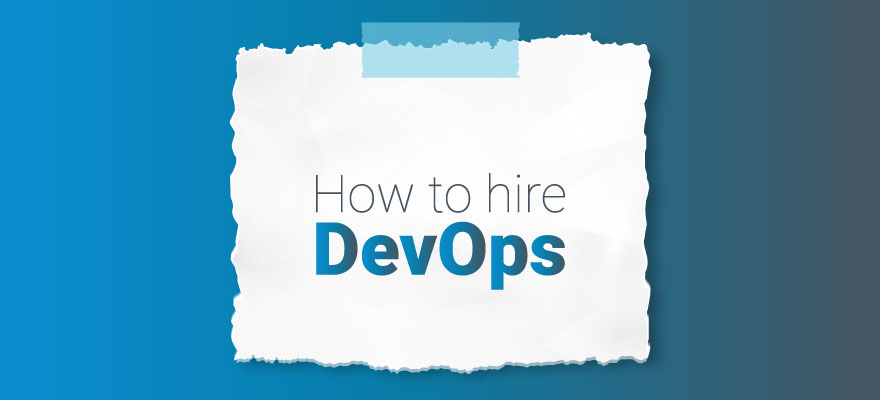Since everything goes fast in the world of digital and technology (and in our time in general), the jobs also adapt to changes in their context. In 8 years, the photofit of the devOps has inevitably developed.
A short history 🏰
The term Devops appeared in 2009, and it is everytime more heard. Basically, it is gradually becoming a real need. Based on the Lean and Agile principles, the collaboration between developers and operators was organized in order to continuously improve the software, with the aim of seizing market opportunities more quickly and making user feedback more fluid.
It ws precisely in 2012 that we began to see the first real experiences of DevOps, that is to say, challenges in organizations re-articulated around this type of emerging operation.
For everyone’s pleasure, there has been a raise of open-source technologies on the subject. Here are some examples:
2009: Chef, Go, MongoDB, Redis …
2010: Elasticsearch, Openstack, Couchbase, Vagrant …
2011: Saltstack, GoogleCloud …
2012: Ansible …
2013: Docker …
2014: Kubernetes, Terraform …
The recruitment of DevOps is now synonym of good health and success for a startup. That’s because hiring a Devops becomes necessary when it is necessary to scale the infra and the increase of customer flow while remaining as agile as possible compared to an innovative and evolving project.
So, considering today’s scenario, how to become a new dreamed-by-companies recruit?
Hint: The answers are based on 3 major pillars: the experience, your skills on the stack and above all … your state of mind.
1. VALUE YOUR EXPERIENCES AS DEVOPS 🎈
One of the advantages of such new professions is that it is impossible to have 10 years of experience in this field. It is therefore on other criteria that you must concentrate.
Start your own startups: DevOps’ role is best suited to these environments. These organizations are innovative with modern stacks in perpetual evolution. If you have forged in large groups, present the projects you worked on, highlighting those who were agile and evolving.
Show your ability to take the lead … even if it’s not a lead position. A DevOps intervenes at the crossroads of two professions and must therefore be proactive.
Exhibit your personal projects: you are not passive, your job fascinates you and it must be seen!
Finally, mention the problems that you had to solve (having worked on a large infra, optimized the load surges, automated production, …), not the processes you have done.
In addition to helping you get the first interview, the experience will give you confidence and credibility during negotiations.
# 2. YOUR SHOWCASE: THE STACK!
This is the first thing that recruiters look at on your resume! From infra design to automation through the industrialization of a web application, the missions are numerous! Finally, we do not seek an expert on technology, but someone competent as a whole.
Have at least one skill per domain, here are some examples:
Cloud: From the public with mostly AWS and Google Cloud (less prevalent than Bluemix, Azure, Rackspace, etc.) or the private build yourself as OpenStack
Microservices: Docker, Kubernetes, EC2…
Scripting: Go, Python, shell in priority, otherwise Ruby, php, Node, etc.
Automatic Deployment: Saltstack, Ansible, puppet, Chef
Continuous Integration: Jenkins, Bamboo
Databases: MongoDB, Redis, couchbase, PostgreSQL, MariaDB, …
Various: Consul for container management, Vagrant for the environment, Terraform for the management of the providers, ELK (Elasticsearch, logstash and kibana) for the management of the Log, …
If the majority of companies know that it is rare to find a candidate with the perfect stack, your knowledge of variants of their stack will reassure them about your ability to be operational quickly.
It is therefore important to work regularly on your technical culture. The bigger it is, the easier it will be to reassure and convince the CTO to join the project.
# 3. MOST IMPORTANT: THE STATE OF MIND
We often talk about DevOps philosophy because this new working approach (which allowed the reconciliation of sysadmin with developers) is above all a methods.
The state of mind is perhaps the most important element when recruiting a DevOps. Usually the first recruitment occurs when the CTO gets to his limits.He needs to delegate this part to a dedicated person who will make the right decisions and make his life easier.
So devOps, what will make the difference for a CTO? How should you introduce yourself? The answer in 4 points:
- Be curious and have a big technical culture: it’s fundamental, it’s a young and evolving profession, do not stay on your achievements! Show that you are able to adapt quickly to changes and that you always have a head start!
- Be entrepreneur: they look for someone who knows how to make the decisions to improve a constantly growing infra. You are here to bring something in a fast moving environment! If you find a new way to proceed, suggest it! Show that you are truly concerned and engaged.
- Know how to popularize and explain your choices: if you want to reconcile Dev and Ops, you have to know how to make yourself understood. If you see that you are able to communicate with everyone and justify your choices in a simple and concise way, it inspires confidence and it is the proof that you have understood your choice by yourself.
- Simply, be friendly, warm and smiling: The main recruitment criterion remains “Do I want to work with this person?”, So put yourself in his place and chances on your side 😉
Conclusion
To conclude, all these elements serve only one thing: REASSURE the CTO. He must feel that with you, he will put the infra in good hands and that he will have no problems! Of course the feeling does not depend on these tips and it may not pass. But by following advices: 1) you greatly increase your chances and 2) a slight feeling can become great during the process.
Are you a DevOps? Tell us about your experience in the comments!





